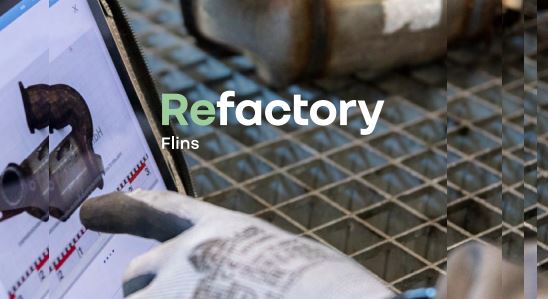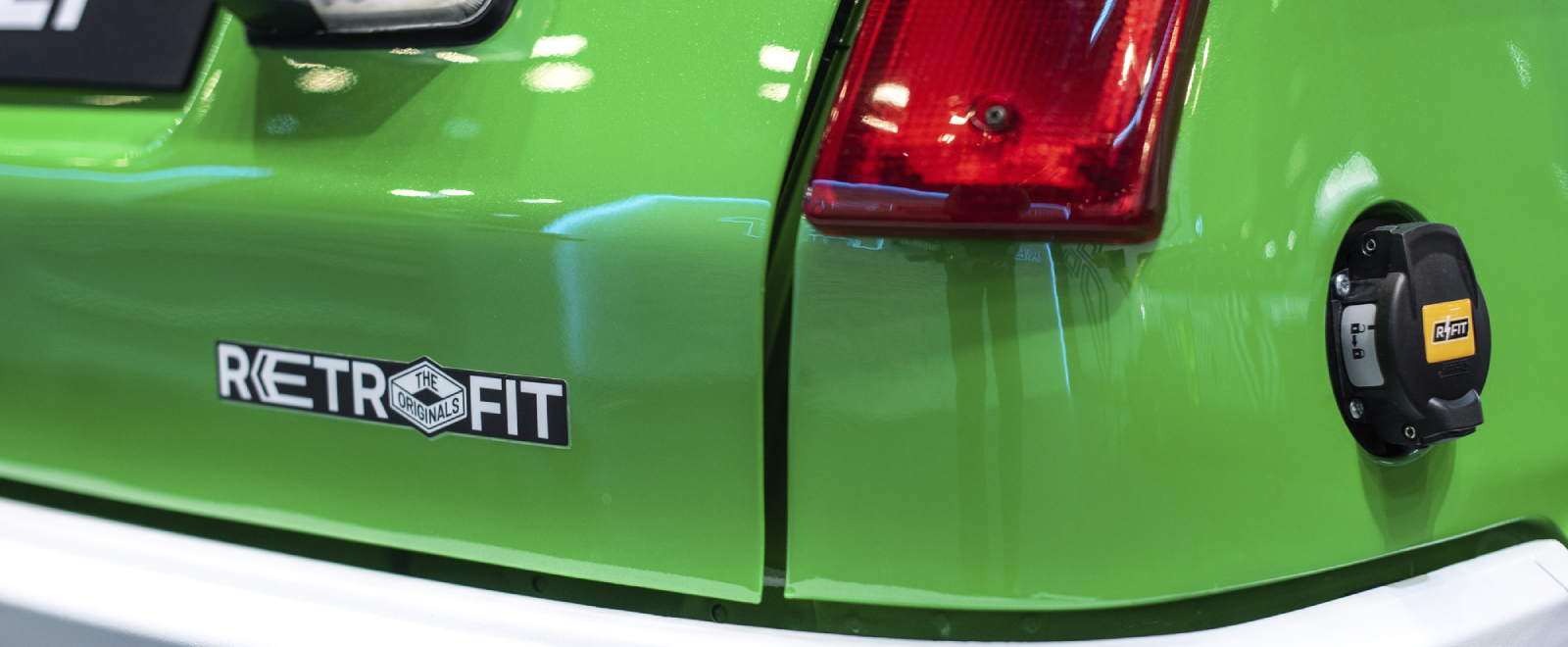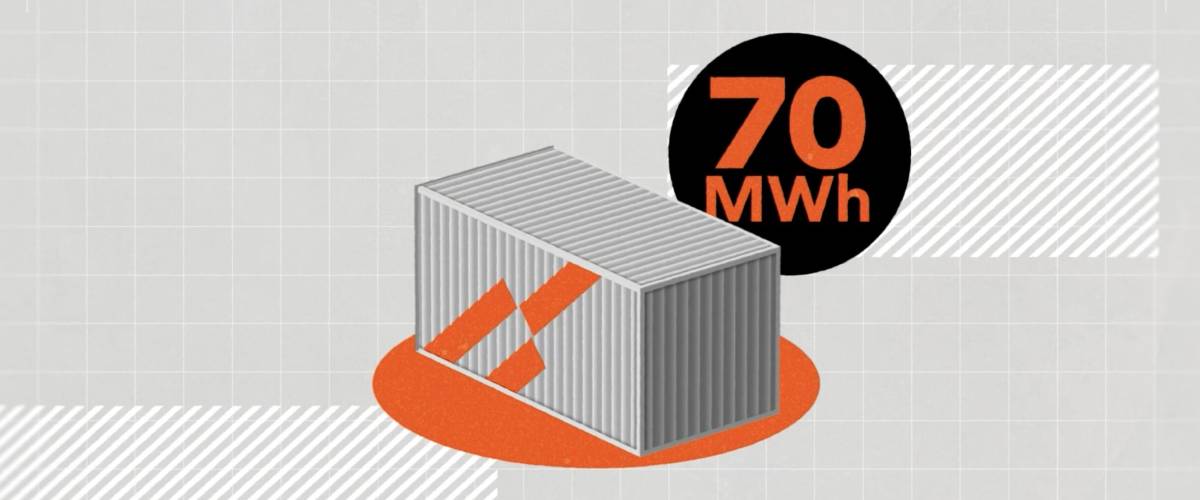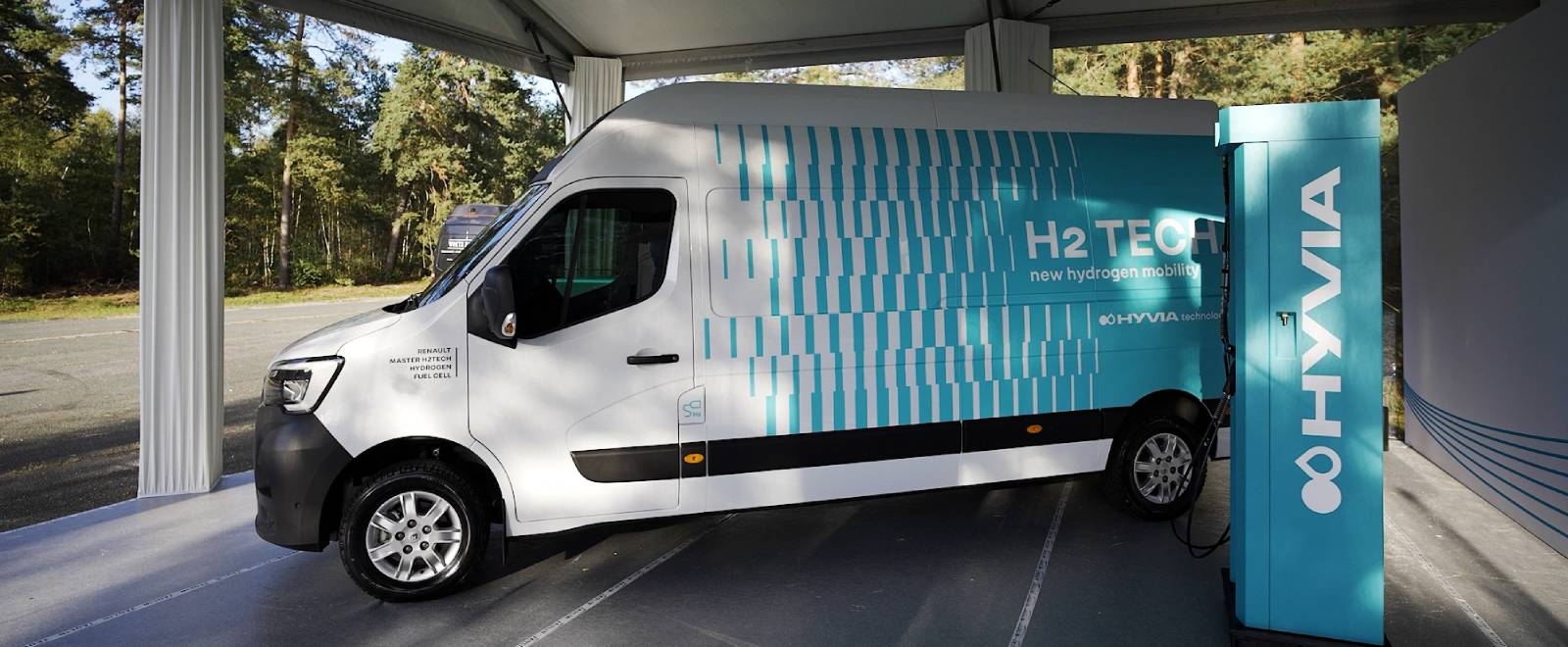

(ARTICLE PUBLISHED IN NOVEMBER 2020, LAST UPDATED JULY 2024)
To achieve this, we are creating the first Refactory in Flins. Having designed models that have marked our history, the factory takes another turn to become in 2021 a site entirely dedicated to the circular economy. A first in Europe. With the Refactory, we want to reinvent ourselves to develop accessible, sustainable, carbon-free mobility solutions for everyone. Ready to follow us in this never-ending adventure?
Our definition of Refactory
The Refactory is Europe's first circular economy factory dedicated to mobility. An industrial and commercial ecosystem created by Renault Group, open to start-ups and partnerships. Its objective is to encourage initiatives, develop innovation in the service of the circular economy, and to contribute to Renault Group’s ambition to achieve carbon neutrality at its industrial sites in 2040 in Europe. A sustainable and responsible reconversion, both environmentally and socially, built on the many assets of the site and its collaborators.
This transformation plan is being rolled out gradually from 2021. The site is organised around 4 activity centres, each with its own field of expertise: Re-trofit, Re-energy, Re-cycle and Re-start.
Re-trofit: extending the life of vehicles
It's a fact. The second-hand market is driven by the awakening of an ecological awareness and new modes of consumption, which favour use over possession. To further pursue this path, we wish to bring together the areas of expertise required to extend the lifespan of vehicles and their uses. Our challenge: to succeed in preserving resources through efficient management of the flow of reuse of parts and materials on the same site.

The bodywork factory
At the end of 2023, the Refactory launched a new repair business for heavily damaged vehicles, aimed at fleets and insurance companies. Called The Bodywork Factory, this unit will give these vehicles a new lease of life.

Retrofit of commercial vehicles
Environmental regulations are also becoming stricter in towns and cities, with the creation of Low Emission Zones restricting access to combustion engine vehicles. Renault Group, in partnership with TOLV, is offering a retrofit solution for converting combustion-powered Master* vehicles to electric drive. The kit is assembled and the vehicle is transformed by the Refactory, in the LCV Retrofit Centre.
*Master III produced before 2019
Re-energy: production, storage & management of renewable energies
In the transformation of the automotive industry, electric vehicle batteries are at the heart of the equation. The issue of their life cycle is crucial for the environment. The ambition of the Re-energy cluster is to optimise the life cycle of batteries, by repairing and reconditioning batteries for automotive use and preparing them for a second life outside the automotive industry (energy storage).

The Flins Expert Battery Repair Centre (CERBF) is capable of repairing batteries in 99% of cases.

A large-scale stationary electricity storage solution has been installed at the Refactory. It is designed to compensate for the intermittent nature of the electricity supplied by the grid.
At a time when fossil fuels still account for 80% of the world's energy production, the fight against CO2 emissions requires the development of renewable energies. Dependent on the presence of sun, wind or current, these energies are produced discontinuously. In 2018, Renault Group launched Advanced Battery Storage (ABS) project, a stationary storage solution based exclusively on electric vehicle batteries installed at the Flins Refactory, the Renault Group Douai Plant and Elverlingsen.
BETWEEN 2021 AND 2030, THE SECOND LIFE BATTERIES SOLD BY THE GROUP WILL REPRESENT AN ANNUAL CAPACITY OF MORE THAN 200 MWH, THE EQUIVALENT OF 4 000 FULL CHARGES OF A RENAULT ZOE.
End-of-life batteries are systematically recycled and their metals reused for other purposes in industry. The next step to which The Future Is NEUTRAL subsidiary is committed is to develop a closed-loop battery recycling process, in order to extract strategic metals for reuse in the production of new batteries in Europe.
HYVIA, hydrogen mobility solutions
The Refactory hosts the activities of the HYVIA joint venture, launched in June 2021, which combine Renault Group and Plug to offer a complete hydrogen mobility offer for professionals. Renault Master H2-TECH is equipped with hydrogen propulsion for access to urban centres, even in case of traffic restrictions aimed at limiting emissions. From light commercial vehicles running on hydrogen to charging stations and related services, HYVIA aims to provide the entire hydrogen ecosystem on a turnkey basis.
Re-cycle: optimising resource management
The European automotive industry has high recycling and recovery rates for parts and materials recovered from end-of-life vehicles (ELVs), in line with regulations. However, the challenge remains to incorporate more recycled materials into the manufacture of new cars, to limit the impact on virgin resources. Renault Group's objective is to include 33% recycled materials in its new vehicles by 2030.
Optimising resource management also means making products last longer. With THE REMAKERS, Renault Group is creating within The Future Is NEUTRAL a new European leader in the renovation of automotive parts. Based at the Refactory in Flins and backed by expertise acquired over 75 years, THE REMAKERS offers a range of 11,000 part numbers, of a quality equivalent to new, and on average 30% more economical for the customer and more respectful of the environment.
Re-start: innovation made accessible for all
The ambition of this centre focuses on enhancing and developing skills, while accelerating research and innovation in the circular economy. An incubator for start-ups and partners, as well as a university and training centre, aim to strengthen the skills of the professions present within the Refactory. The training pole is also designed to promote the inclusion of people who have left the school system, to promote their access to employment.
The open innovation Hub, an incubator open to all
The Refactory in Flins is integrating an incubator open to start-ups to develop or co-develop innovative projects. It will include a space for in situ experimentation on industrial installations, in collaboration with experts from different fields (vehicle architecture, materials, electric vehicles, energy, recycling, lean manufacturing...).
The Industry Innovation Centre
Refactory has an Industry Innovation Centre, whose skills are based on five activities:
- the development of new industrial processes,
- retrofitting of industrial equipment, in particular robots,
- the collection of machine data within the Control Tower for predictive maintenance,
- parts additive manufacturing with 3D printers
- prototyping of commercial vehicles.
Campus de l’Industrie Circulaire de la Mobilité
In order to support employees in this transformation plan, Refactory is developping knowledge and skills through its Mobility Circular Industry Campus, in three areas:
GLOBAL TRAINING CENTRE
Created in 2010 in Flins, this international vocational training centre has until now specialized in industrial techniques. It now offers new modules to meet training needs within the Refactory, the Group and outside the company.
CREATION OF ACADEMIC TRAINING
On the scale of the automobile sector and industry, Refactory also intends to contribute to the creation of academic training, such as the creation of a Certificate of Trades and Qualifications (CQM). In order to share know-how more widely and design training courses that meet the needs of the industry of the future.
PARTNERSHIPS IN APPLIED RESEARCH
In the field of applied research, partnerships are set up with consortia of schools and universities to boost innovation in the circular economy. By promoting concrete experimentation and direct immersion in an industrial field, the Group wishes to encourage research in the scientific field and in the human and social sciences.
Pioneer of the circular economy - 70 years of experience
Since its beginnings, Renault- Group is committed to making cars that last a long time.
- As early as 1949, Renault developed the circular economy, with the remanufacturing of its parts at Choisy-Le-Roi (Yvelines, France).
- In 1993, the Group incorporated recycled plastics into its vehicles.
- In 2008, it developed a capital-intensive approach that is unique in the sector, through partnerships and equity investments in activities 100% dedicated to the circular economy.
- In 2021, Renault Group launches the Refactory project, aimed at transforming the Flins plant into the first industrial site in Europe dedicated to the circular economy of mobility.
- In 2022, it launches The Future Is NEUTRAL, a company dedicated to building, in association with the best partners, a complete automotive circular economy offering, serving the entire industry, in order to meet the challenges of diminishing natural resources.
- Today, it is the only player in the automotive industry to have built a complete industrial and commercial circular ecosystem. A lever for sustainable competitiveness, which meets the high expectations of its partners and stakeholders, including the Ellen MacArthur Foundation.







